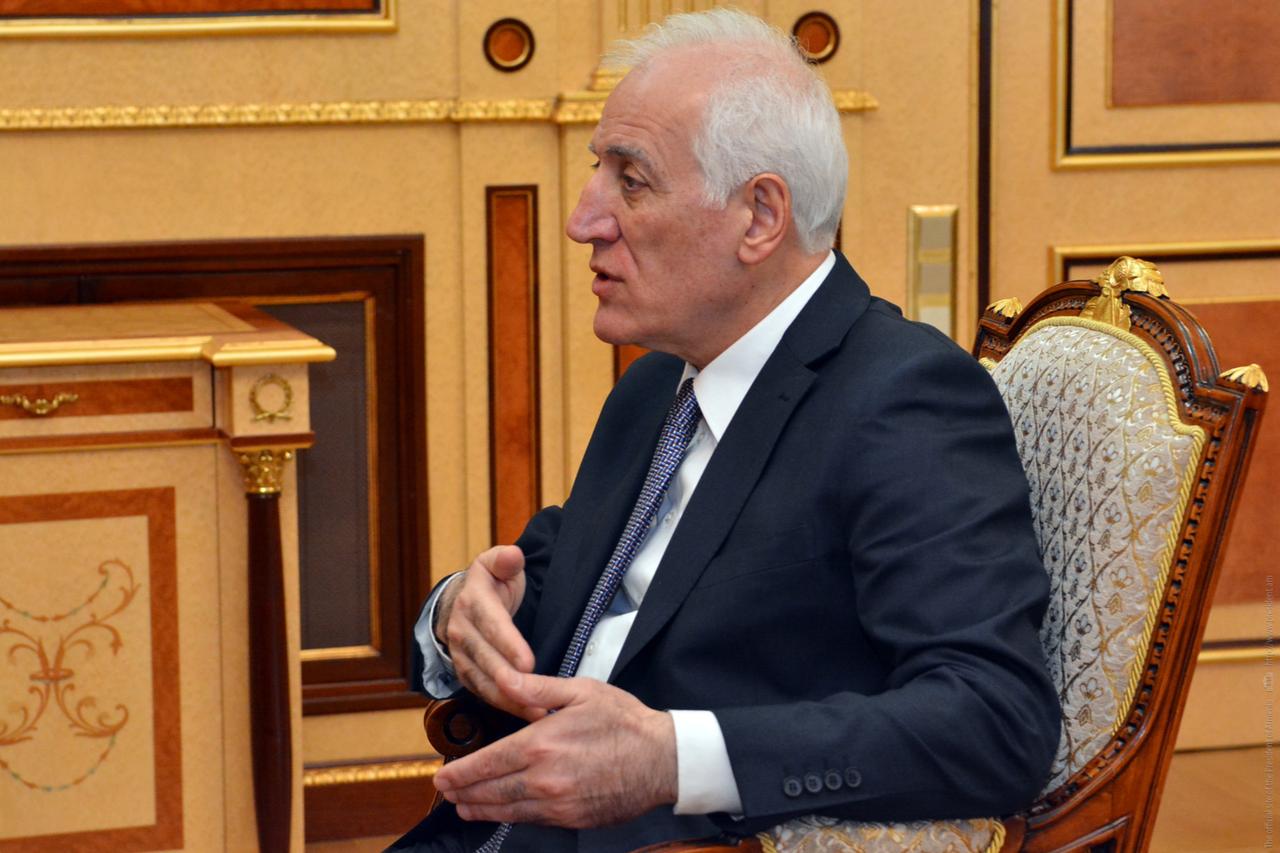
Armenian President Vahagn Hacaturyan announced in an interview with Spanish newspaper El Pais that a peace agreement to end the conflict with Azerbaijan, which has continued for more than 30 years, could be signed soon.
"Both countries need peace; this document opens a new page in our relations," Hacaturyan said during the nearly hour-long interview in Seville, where he was attending a UN summit.
The Armenian president expressed optimism about the peace deal that promises to end more than three decades of conflict that has claimed over 40,000 lives in Karabakh.
In March, Armenia and Azerbaijan reached a historic peace agreement, still awaiting ratification, marking a significant breakthrough in the long-standing dispute.
"It has taken a long time, and it is positive that we have reached this pact on several issues. The most important of them is the recognition of mutual territorial integrity," Hacaturyan stated.
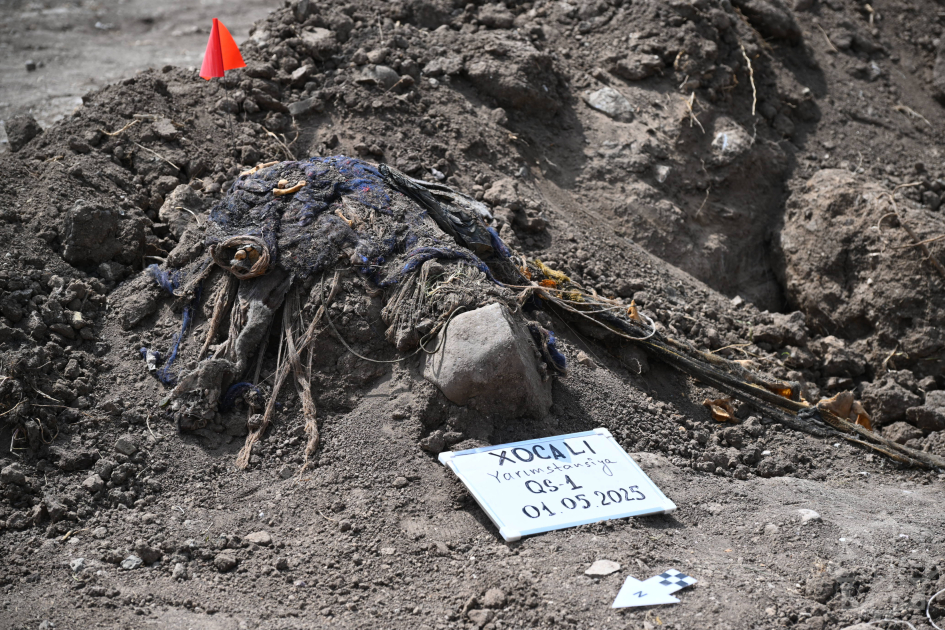
When asked about the signing timeline, the Armenian president remained cautious: "I cannot provide that information. It is a very delicate matter, and silence is important at this stage, but we are quite optimistic that the document will be signed."
He emphasized that both countries desperately need peace: "Both countries need peace; the entire region needs peace. A new page opens in our relations, which I trust will be of peace and good neighborliness."
Regarding whether the agreement could be sealed before year-end, Hacaturyan said, "It's not that I want to keep it secret; it's that I can't predict how it will progress. We have been waiting for this moment for a long time: 34 years. And we will have enough patience to wait for both leaders (the Armenian prime minister and the Azerbaijani president) to sign the document."
The president clarified Armenia's stance on Karabakh: "Karabakh was always Azerbaijan territory. We don't need to dig into history again: sometimes that distracts us from considering today's issues."
"We could have considered what its status would be within Azerbaijan territory, but unfortunately, we lost the opportunity. We had that possibility for the last 30 years, and we didn't achieve it," he added.
Addressing the situation of Armenian citizens, Hacaturyan revealed that 115,000 people arrived in Armenia from Karabakh in 2023 and have been the center of government and public attention since the beginning.
"We are receiving assistance to meet their needs from the EU and other partners, to whom I take this opportunity to thank for their support. It is a humanitarian catastrophe, and the main challenge is sheltering them," he said.
The president expressed hope that once the peace agreement is signed and borders reopen, "we hope to be able to heal the pain."
When questioned about Armenian society sectors believing "too many" Azerbaijani demands were accepted, Hacaturyan defended the approach: "I am aware, but the most important achievement is peace; if we manage to achieve it within the framework of mutual territorial integrity, the rest can be resolved. If we enter that narrative of who accepts or rejects this or that... we would never have reached a consensus. Both sides benefit: it has been a desire of both, not an imposition."
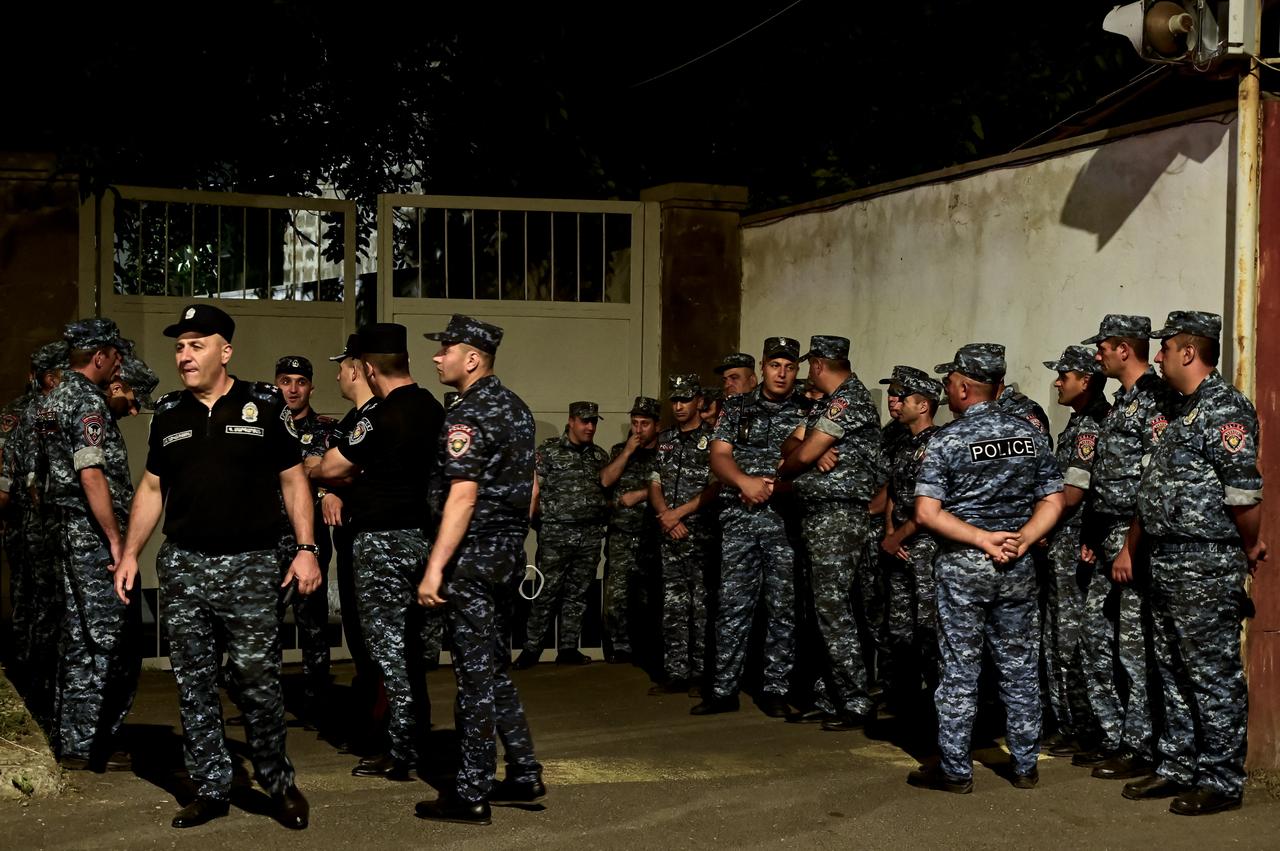
In March, the Armenian Parliament approved a law to begin the EU accession process. Hacaturyan explained the motivation: "The aspiration of the majority of society is toward Europe and the EU. In October, an independent survey put at 65% the Armenians who desire it. And that could not be ignored by the parliamentary majority."
From September 2022, the government decided to approach the EU, expanding cooperation beyond institutional and economic reforms to include a security component.
"Our society values that democracy and all freedoms, including freedom of expression, are guaranteed by the EU," he stated.
Discussing Armenia's changing relationship with Russia, Hacaturyan acknowledged the complexity: "For more than 70 years, we were part of the Soviet Union. So those ties still exist; it's something present in our mentality. There are still people who live with those memories."
He noted that more than two million people of Armenian ethnicity live in Russia, with family and friends in Armenia, maintaining commercial relationships.
Regarding the Russian invasion of Ukraine, he said, "We have been in a difficult situation since then. We recognize the territorial integrity of all countries, including all former Soviet republics: Russia, Ukraine, Georgia, and those of Central Asia... Otherwise, it would be chaos."
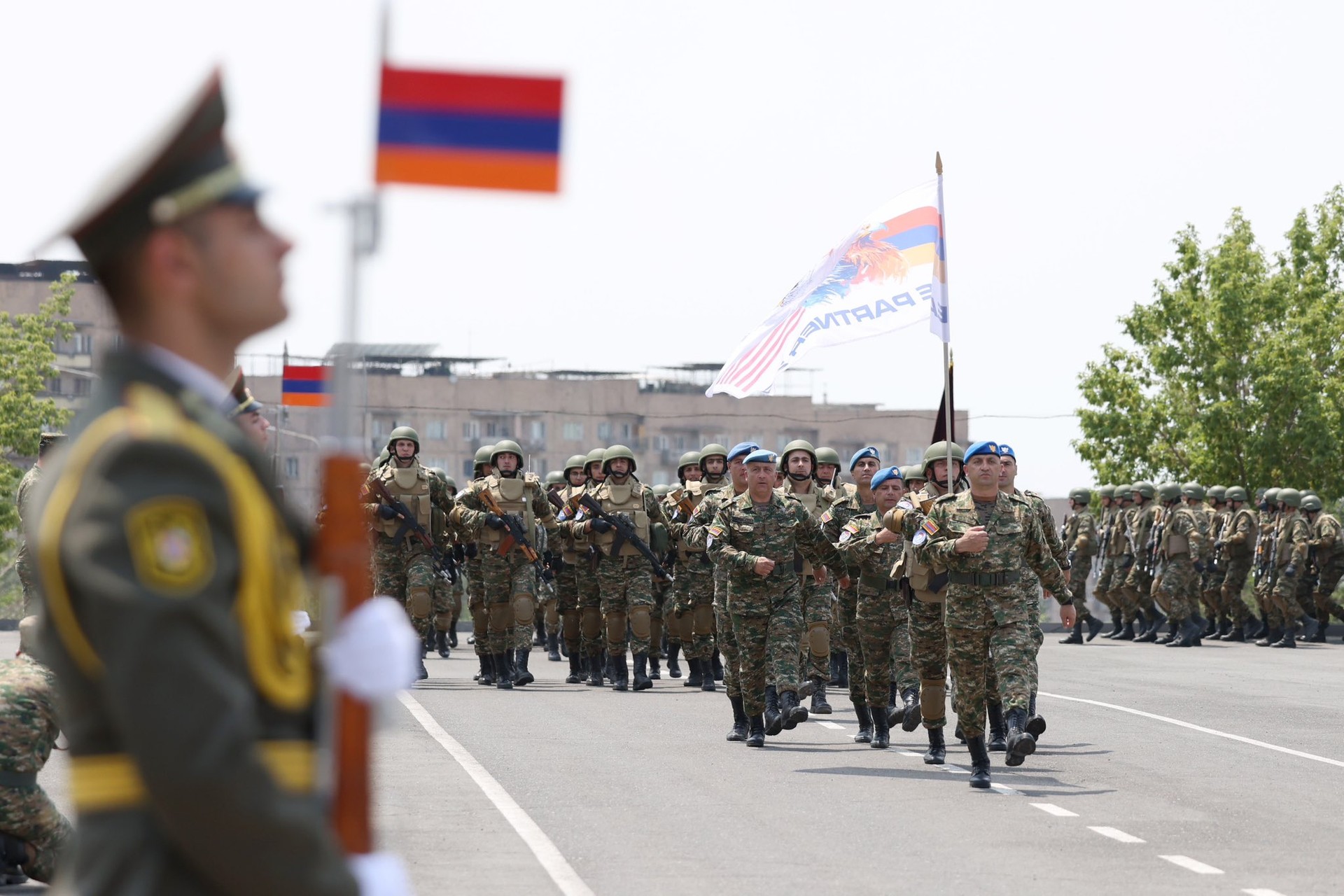
The president emphasized Armenia's position supporting Ukraine while maintaining relations with Russia: "We are in favor of the territorial integrity of all countries, Ukraine included. And we want to maintain relations with both."
Armenia signed a strategic cooperation agreement with the United States in January under then-President Joe Biden. Regarding changes with the new administration, Hacaturyan said, "There is willingness from the U.S., and progress continues to be made. We hope to be able to make an announcement about it."
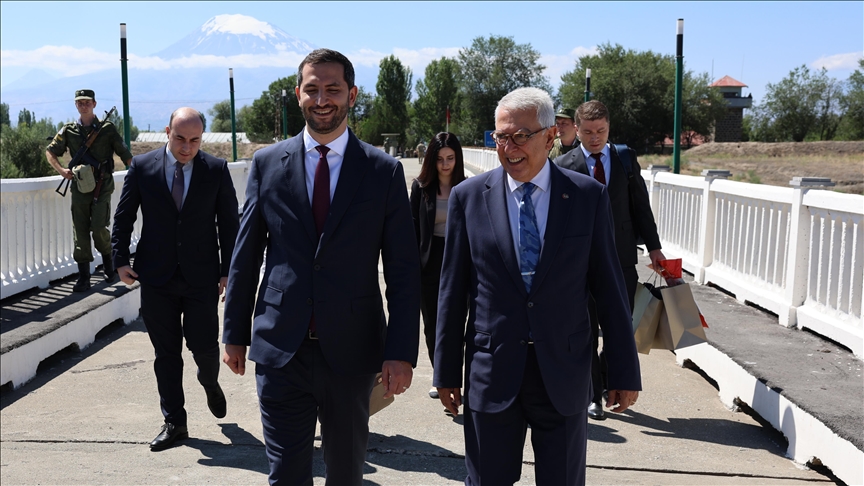
Discussing Armenian Prime Minister Nikol Pashinyan's recent visit to Türkiye after decades of tension, Hacaturyan highlighted Armenia's challenging neighborhood: "We have four neighbors: with two of them (Türkiye and Azerbaijan), the borders are closed and we have no diplomatic relations; with the other two (Georgia and Iran), our relationship is quite warm."
He acknowledged past policy mistakes: "For a long time, it was thought that we could survive with closed borders. But it was a wrong policy."
The president expressed satisfaction with positive developments: "I am glad to see this positive logic. Our will is to open the border and establish diplomatic and good neighborly relations with Türkiye, without preconditions. The visit should be considered from that angle: there is an opportunity, and we must take advantage of it."
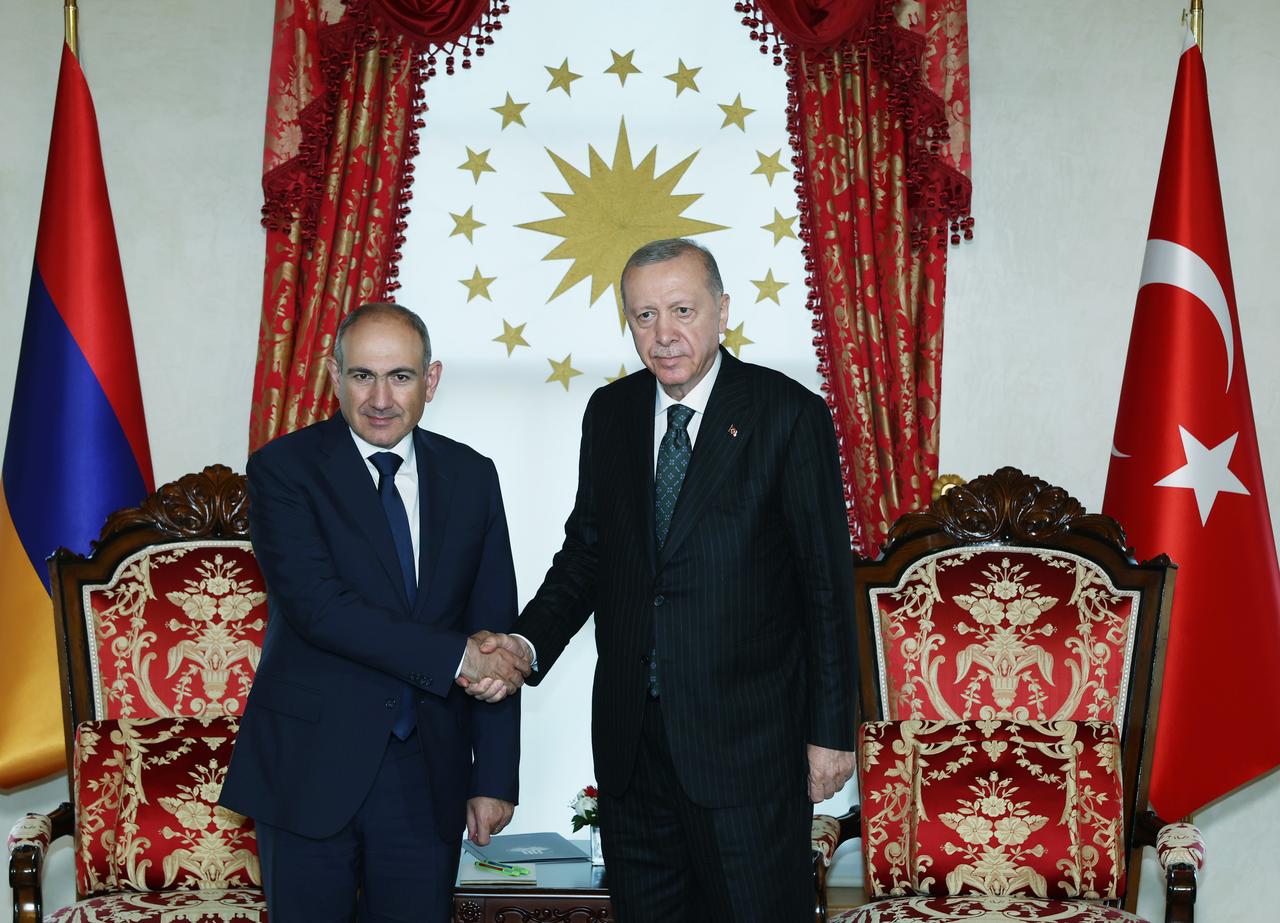
Addressing recent domestic tensions involving the detention of clerics and opposition figures accused of plotting against the government, Hacaturyan clarified, "The problem is not with the church, but with some clerics who have decided to get involved in politics. There's no problem, but then they wouldn't be clerics anymore: our Constitution separates the church and the government."
He described the alleged plot: "They had a plan to take power by force, with violence, and make the country ungovernable. We are in a situation of hybrid warfare; we are very aware of it."